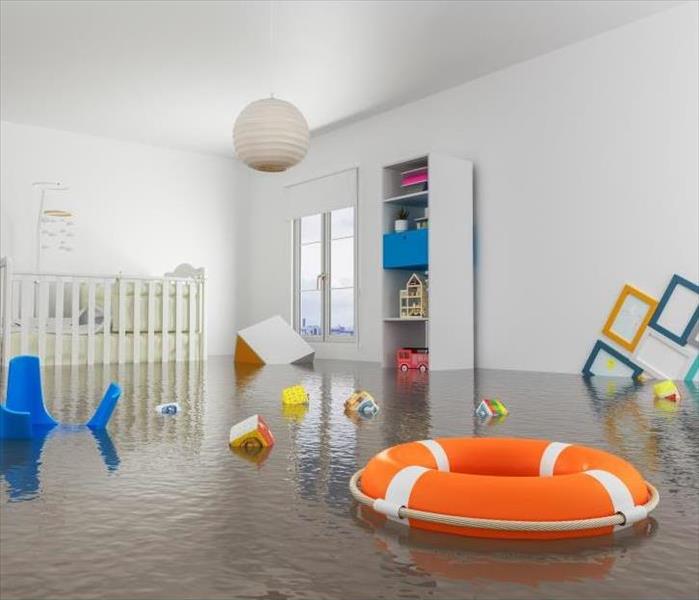Is The Flood Water In My Smithtown Home Contaminated?
6/21/2020 (Permalink)
 Regardless of the room affected, flooding can damage the walls and contents of your home. Call team SERVPRO today for services.
Regardless of the room affected, flooding can damage the walls and contents of your home. Call team SERVPRO today for services.
SERVPRO Experts Are Biohazard Experts Who Will Identify and Properly Treat Flood Waters in Your Smithtown Home
When experiencing water damage from flooding in your Smithtown residence, immediate mitigation is needed to control further damage.
Is there more than one type of floodwater?
Water removal in Smithtown is the first step in emergency mitigation. Before water extraction happens, determining the type of water is fundamental, as this dictates how the water will be handled and disposed of. There are three types of water from flooding:
- Clean water – It has no contaminants and poses no immediate dangers. Flooding from rain, snow, toilet holding tanks, and appliances such as air conditioners or refrigerators is the usual source.
- Gray Water – it has the potential for health risks from biological or chemical contaminants. Gray water leaks from aquariums, dishwashers, sinks, and washing machines.
- Black Water – can contain any number of contaminants such as bacteria and viruses. Toilets are a source of black water. Floodwaters are another source due to the sewage and dirt collected as it flows.
Standing Water Can Be Detrimental
One of the reasons immediate water removal is crucial is because the status of the water can change. Clean water becomes gray after 48 hours, and the gray becomes black. The health risks increase the longer the water stands. Our SERVPRO Institute of Inspection, Cleaning and Restoration Certification (IICRC) technicians are trained in the removal of all 3 types of water.
- Clean Water – Extraction method depends on the size and depth of the flood. Truck pumps are used for large amounts of water, while portable pumps deal with more contained flooding.
- Gray Water – Technicians immediately spray with an EPA-registered disinfectant. If you have carpet, the padding will be disposed of properly.
- Black Water – items in black water may need disposed of and considered infectious waste if they cannot be decontaminated. Using proper PPE equipment and disinfectants assures decontamination.
The bottom line is to deal with floodwaters right away before the health risks increase.
Contact SERVPRO of Greater Smithtown at (631) 265-9200. We’re Faster To Any Size Disaster
Click here for more information about Smithtown.






 24/7 Emergency Service
24/7 Emergency Service